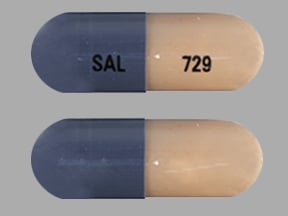
Vancocin Coupons & Savings Card – Discount Prices from $36.01
Brand for: Vancomycin
My prescription
Edit
125MG, Vancomycin (40 Capsules)
Select pharmacy

CVS
$36.01
COUPON PRICE
Walgreens
$55.80
COUPON PRICE
Walmart
$61.89
COUPON PRICE
Albertsons
$72.98
COUPON PRICEVancocin savings card
Show this card to your pharmacist
CVS
$36.01
BIN
ID
PCN
GRP
019876
LHC9884E08
CHIPPO
LHX
Powered by
Related glycopeptide antibiotics prescriptions
More prescriptions for skin infection
Related glycopeptide antibiotics prescriptions
More prescriptions for skin infection
Price history for Vancocin (brand) & Vancomycin (generic)
40 Capsules, 125MG
Average retail price for Vancocin
Average retail price for Vancomycin
Average SaveHealth price for Vancomycin
Our price history data is based on aggregated prescription data collected from participating pharmacies in America. Our prescription data updates daily to reflect the latest price changes. If you notice a missing data point, it means there wasn't sufficient data available to generate a monetary value for that date.
Over the last 12 months, the average discount price of Vancocin is $61.75 using the SaveHealth savings card. That's an average savings of 98.36% on Vancocin with our discount card.
*Retail prices are based on pharmacy claims data, and may not be accurate when we don't have enough claims.
Vancocin (Vancomycin) dosage forms
Dosage Quantity Price from Per unit 125MG 40 Capsules $36.01 $0.90 125MG 1 Capsule $3.98 $3.98 125MG 20 Capsules $27.16 $1.36 125MG 50 Capsules $40.44 $0.81 250MG 1 Capsule $4.60 $4.60 250MG 20 Capsules $34.52 $1.73 250MG 30 Capsules $42.64 $1.42 250MG 40 Capsules $50.75 $1.27 250MG 50 Capsules $58.86 $1.18 250MG 60 Capsules $66.97 $1.12
| Dosage | Quantity | Price from | Per unit |
|---|---|---|---|
| 125MG | 40 Capsules | $36.01 | $0.90 |
| 125MG | 1 Capsule | $3.98 | $3.98 |
| 125MG | 20 Capsules | $27.16 | $1.36 |
| 125MG | 50 Capsules | $40.44 | $0.81 |
| 250MG | 1 Capsule | $4.60 | $4.60 |
| 250MG | 20 Capsules | $34.52 | $1.73 |
| 250MG | 30 Capsules | $42.64 | $1.42 |
| 250MG | 40 Capsules | $50.75 | $1.27 |
| 250MG | 50 Capsules | $58.86 | $1.18 |
| 250MG | 60 Capsules | $66.97 | $1.12 |
| 250MG | 90 Capsules | $91.31 | $1.01 |
What is the drug Vancocin used for?
Vancocin is used to treat serious bacterial infections, including those caused by methicillin-resistant Staphylococcus aureus (MRSA) and certain types of colitis caused by Clostridium difficile. It is an antibiotic that works by stopping the growth of bacteria.
Is vancomycin the same as Vancocin?
Yes, Vancocin is a brand name for the antibiotic vancomycin. They refer to the same medication.
What is the generic name for Vancocin?
The generic name for Vancocin is vancomycin.
Why is vancomycin the drug of last resort?
Vancomycin is often considered a drug of last resort because it is typically reserved for treating serious infections caused by bacteria that are resistant to other antibiotics, such as methicillin-resistant Staphylococcus aureus (MRSA). Using vancomycin as a last resort helps to prevent the development of resistance to this powerful antibiotic, ensuring it remains effective for severe cases where other treatments have failed.
What to avoid while on vancomycin?
While taking vancomycin, it is important to avoid the following:1. Alcohol: It is generally advisable to avoid alcohol as it can increase the risk of side effects and may affect the efficacy of the medication.2. Nephrotoxic Drugs: Avoid other medications that can harm the kidneys, such as nonsteroidal anti-inflammatory drugs (NSAIDs), unless prescribed by a healthcare provider.3. Ototoxic Drugs: Avoid medications that can cause hearing damage, as vancomycin itself can be ototoxic.4. Dehydration: Ensure adequate hydration to help protect kidney function.5. Over-the-counter Medications and Supplements: Consult with a healthcare provider before taking any new medications or supplements to avoid potential interactions.Patients should always follow their healthcare provider's advice and report any unusual symptoms or side effects.
